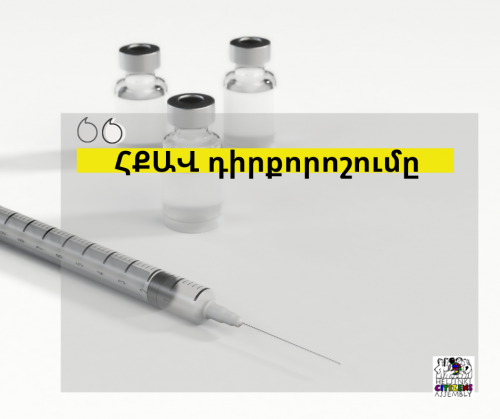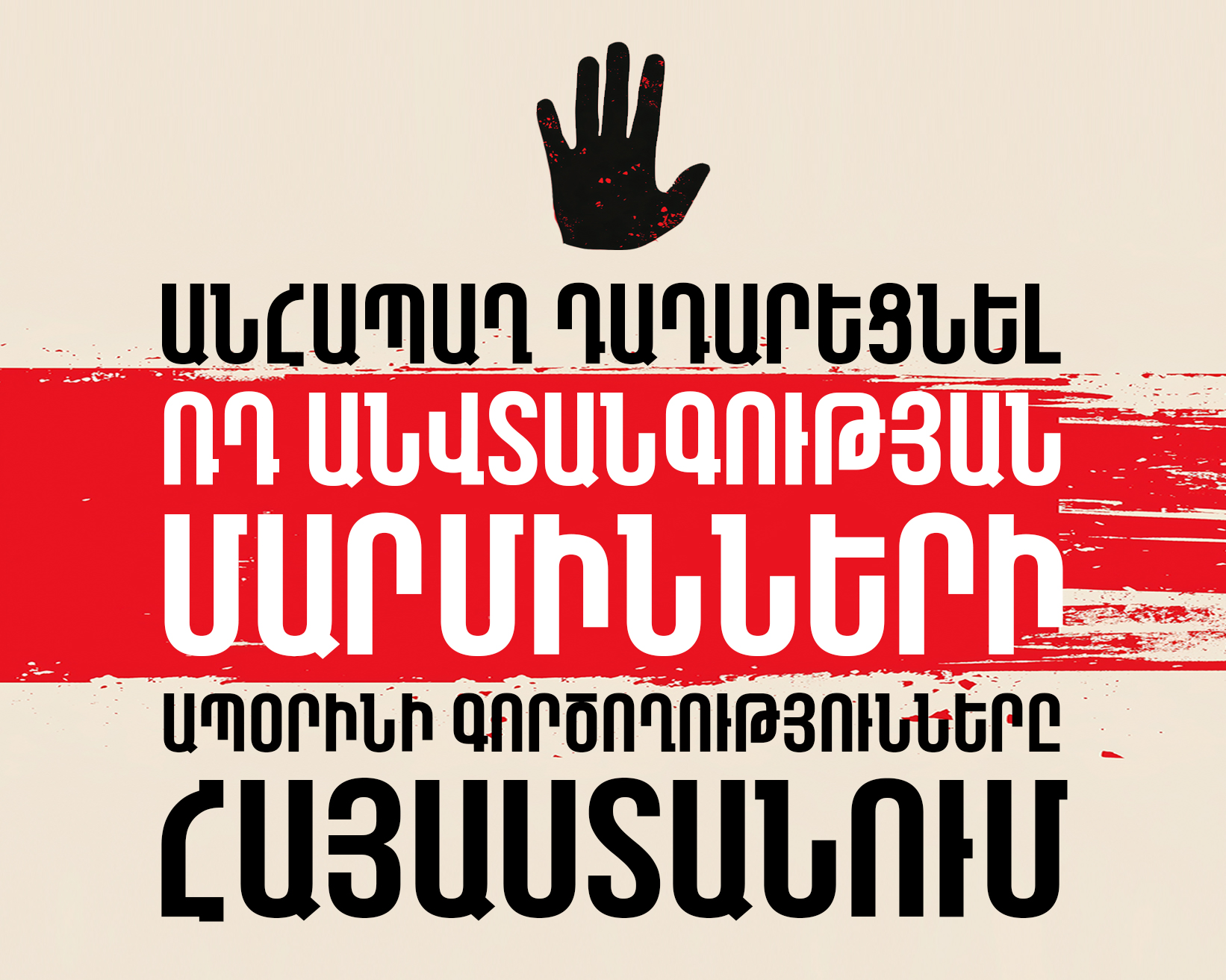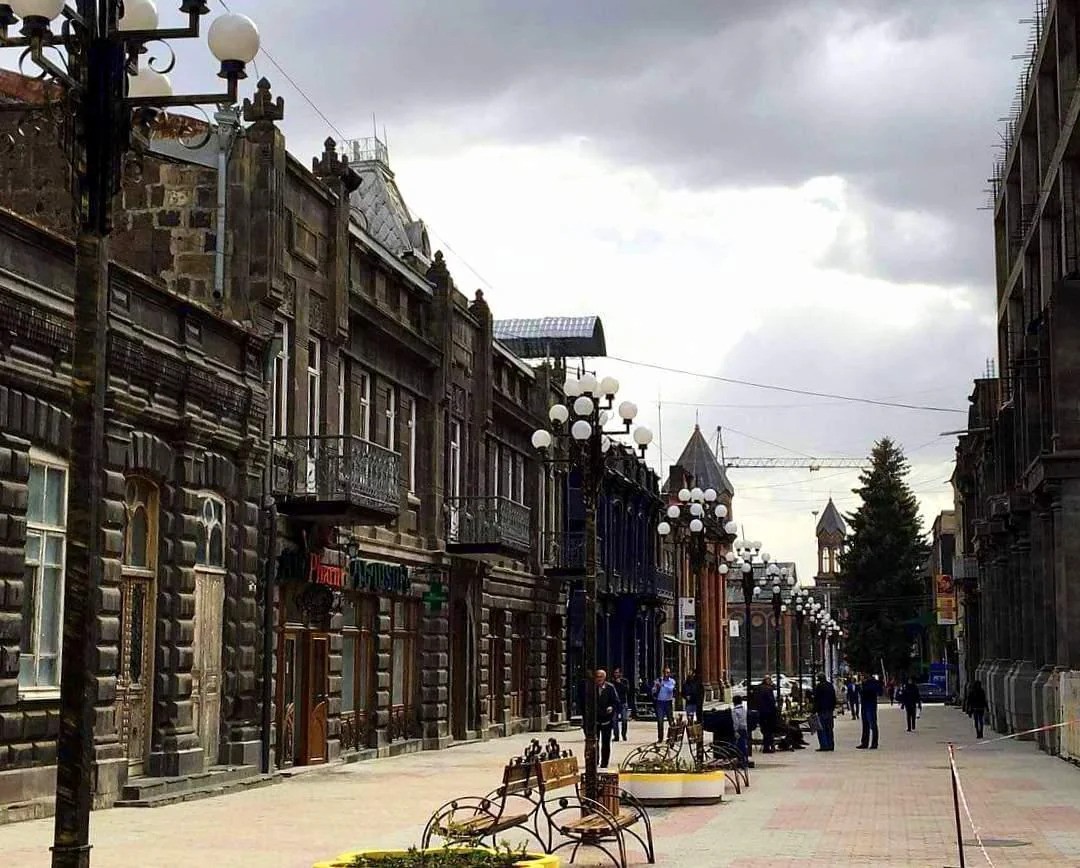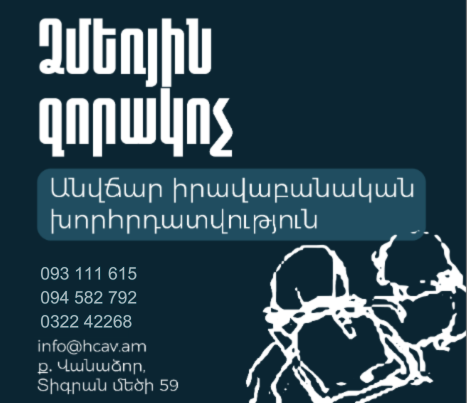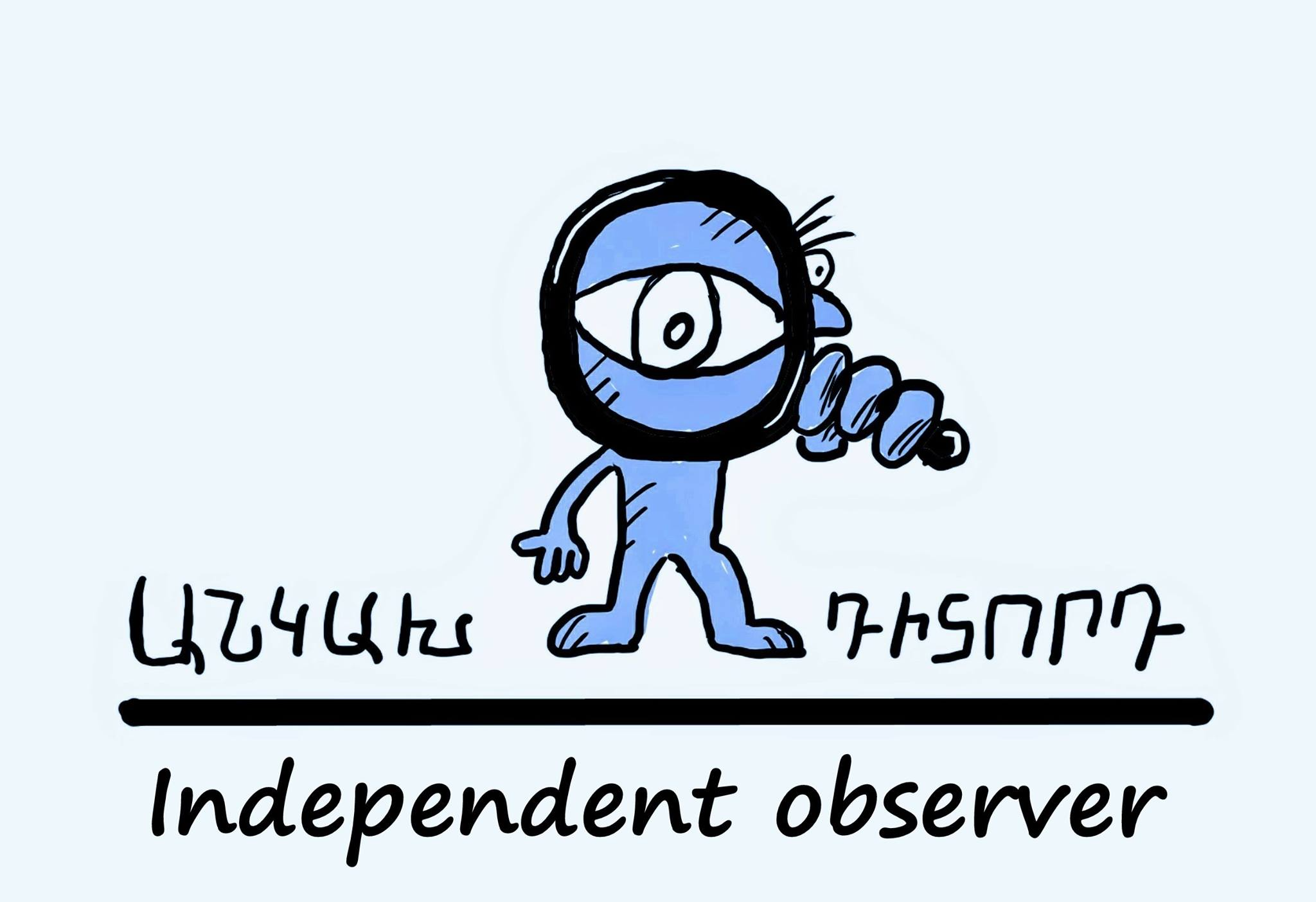




Human Rights Situation in the Republic of Armenia under the State of Emergency Established for the Prevention of COVID-19 Pandemic: 16 March – 14 April, 2020 Part 1
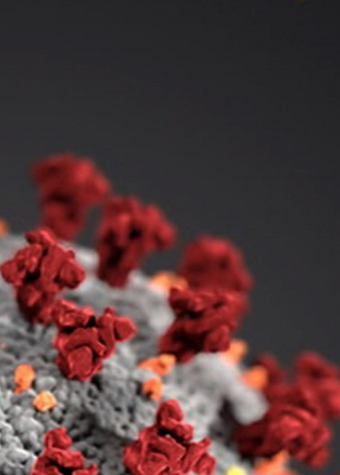
COVID-19 | Activities | Reports|Information Papers|Brochures | Current Announcements | Law Enforcement Practice Analysis | Publications | Human Rights in the State of Emergency | Own | Legislative Proposals | Legislative Proposals and Analysis
On 11 March 2020, the World Health Organization (WHO) announced an outbreak of the COVID-19 virus (COVID-19 virus), which was first detected in December 2019 in the Chinese city of Wuhan, reaching the level of a pandemic. The WHO called for states to take urgent and aggressive action to curb the spread of coronavirus. The WHO statement stressed that countries must strike a fine balance between protecting health, minimizing economic and social disruption, and respecting human rights.
The first event aimed at COVID-19 in the Republic of Armenia (RA) was the formation of an interdepartmental commission coordinating the work to prevent the spread of coronavirus defined by the RA Prime Minister's decision No. 93-A of 30 January 2020.
The first case of infection was registered on 29 February 2020. The work of educational institutions was stopped from March 2 to 8, the march dedicated to the memory of the victims of March 1 was canceled, but on March 6, the "Civil Contract" party headed by the Prime Minister launched a campaign ahead of the April 5 referendum on constitutional amendments. From March 6 to 12, within the framework of the campaign, meetings and rallies were organized in Yerevan, Stepanavan, Syunik and Vayots Dzor regions.
Prior to that, according to the recommendation No. zh/6078/2020 of 27 February 2020 of the first Deputy Minister of Labour and Social Affairs of the Republic of Armenia, the visits to the care facilities for the elderly were limited.
From 25 February 2020, visits of parents and relatives of servicemen to all military units of the RA Armed Forces, all types of leaves and release of conscripts, including rehabilitation (medical) leaves (except for servicemen who serve under the "I am" military service program) have been prohibited.
On 11 March 2020, the Prime Minister of the Republic of Armenia announced that three new cases of coronavirus had been registered in Armenia. On March 12, the "Yes" campaign was discontinued, on March 13 the work of educational institutions was stopped again, while on March 14 the Central Electoral Commission of the Republic of Armenia was still organizing training courses for members of precinct election commissions. On March 15, a new case of infection was registered in one of the factories of Yerevan.
A state of emergency was declared in the entire territory of the Republic of Armenia from 16 March 2020, 18:30 to 14 April 2020, 17:00, inclusive.
As of 22:00 on March 16, 694 tests of coronavirus disease were carried out in Armenia, 45 of which were positive. As of 11:00 a.m. on April 13, 1039 cases of coronavirus infection have been confirmed, 211 of which have been cured and 14 of which have resulted in death.
For a full assessment of the current legal regime of the state of emergency, we consider it necessary to point out the following initial circumstances.
The first circumstance: the latest state of emergency in the Republic of Armenia was declared on 1 March 2008 to prevent the peaceful protests by political opposition for the falsifications of the 19 February 2008 presidential election results. At that time, a state of emergency was declared in the city of Yerevan by the RA president R. Kocharyan's decree, without the existence of the RA Law “On the Legal Regime of the State of Emergency,” which was adopted only on 21 March 2012.
The second circumstance: by declaring the state of emergency, the authorities used mass political persecutions of the opposition through illegal criminal prosecution, criminal proceedings and arrests. An emergency regime was established in the Republic of Armenia not for the protection of the interests of the population, but for the purpose of illegal persecution of citizens.
The third circumstance: the RA Law “On the Legal Regime of the State of Emergency” was adopted on the basis of the previous experience of the state of emergency and has not defined proper approaches to the issues of proportionality and legality of human rights limitations in emergency situations, management and decision-making issues in emergency situations.
The COVID-19 pandemic is a serious challenge not only for Armenia but for all countries. The pandemic revealed a number of institutional problems relating to ensuring of legislation, administration, human rights and freedoms under the state of emergency. It should be noted that the shortcomings should be addressed exclusively in accordance with the standards of protection of human rights and fundamental freedoms.
A statement from the United Nations (UN) experts, issued on 26 March 2020, stated that “Everyone, without exception, has the right to life-saving interventions and this responsibility lies with the government. The scarcity of resources or the use of public or private insurance schemes should never be a justification to discriminate against certain groups of patients. Everybody has the right to health.”
Attaching importance to the respect of human rights in emergency situations, Helsinki Citizens' Assembly-Vanadzor office, (HCAV), initiated awareness-raising, legal support, monitoring of legislative changes due to the COVID-19 virus epidemic. The results of the monitoring of legislative changes are summarized in this document (Report).
The report aims to assess the compliance of the legal acts adopted in the conditions of the state of emergency with the norms and principles of international human rights law, to identify the legislative and practical problems in the implementation and protection of human rights under the state of emergency, and to come up with recommendations and approaches.
The report assesses the measures taken during the state of emergency declared from 16 March 2020, 18:30 to 14 April 2020, 17:00.
The legal assessment is based on the approaches, recommendations of international human rights organizations, the principles, statements developed by intergovernmental organizations, international obligations undertaken by the Republic of Armenia in the field of human rights protection, the experience of bodies acting on the basis of international agreements, RA legislation, as well as scientific articles and other materials.
See the full report HERE


